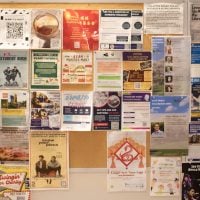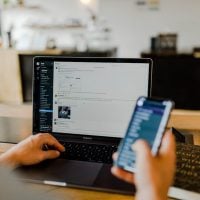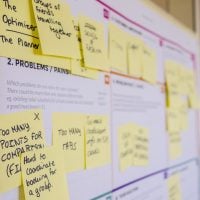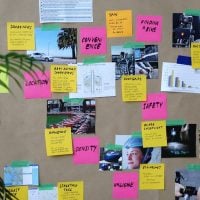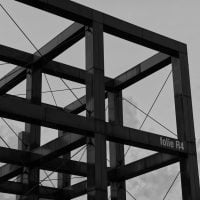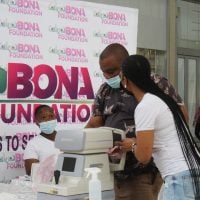Deadline: 30 April 2018
Applications are open for the United States Ambassador’s Small Grants program (ASG) which provides one-time small grants to community development programs that improve the socio-economic wellbeing and/or health of the community. The ASG Program is designed to support communities help themselves.
Funding under the ASG Program is largely provided by the U.S. President’s Emergency Plan for AIDS Relief (PEPFAR) and by the U.S. Department of State Self-Help. Under the ASG, projects must originate in the community, and the community members need to make significant contributions to the success of the project, such as land, labor, funds, materials, ongoing supervision, and other resources.
Funding Information
American contribution to any one project ranges from $3,000 to $10,000. Smaller requests are also welcome.
Categories
Currently, the ASG funds projects in three categories:
- Form A: Programs for Community Development Projects in the Larger Community
- Acceptable Projects: Projects which may be funded include but are not limited to the following:
- Small construction projects like school rooms, community centers, health clinics or workshops,
- Water/sanitation related projects like wells, toilets or bore holes,
- School equipment or supplies like desks, chairs, blackboards or library books,
- Communal construction equipment like brick making machines,
- Some durable goods like a stove or refrigerator for a school or operating tables for a clinic, or
- Income-generating equipment like weaving looms, sewing machines or rice-milling machines.
- Project Selection Criteria: Project proposals selected for funding generally incorporate the following criteria. Projects should:
- Respond to the initiative and aspirations of the local community,
- Involve a significant local contribution in cash, labor or material,
- Be maintained and operated by the local community,
- Improve basic economic or social conditions in the community,
- Benefit a large number of people through high-impact, quickly implemented activities,
- Be completed within 6 months and not require additional funds to maintain, and
- Have visible benefits for the community and be self-sustaining.
- Acceptable Projects: Projects which may be funded include but are not limited to the following:
- Form B: Programs for Children Orphaned by Hiv/Aids and Other Vulnerable Children
- Acceptable Projects: Projects which may be funded include, but are not limited to, the following:
- Basic education/training programs or workshops in the areas of:
- Food and nutrition
- Safe infant feeding and weaning
- Caregivers’ practices
- HIV/AIDS prevention and care
- Legal and protection aid
- Small construction projects such as health clinic or classroom
- School or health clinic equipment
- Durable goods such asstoves or refrigerators for a classroom or clinic
- Vocational or educational training support
- Household economic strengthening
- Basic education/training programs or workshops in the areas of:
- Project Selection Criteria: Project proposals selected for funding generally incorporate the following criteria:
- Involve a significant community contribution in cash, labor, or material
- Be maintained and operated by the local community
- Improve basic health or social conditions of children (0-17 years) in the community
- Benefit a large number of people through high-impact, quickly implemented activities
- Have visible benefits for the community and be self-sustaining
- Be related to HIV/AIDS prevention, care and support, education or capacity building
- Be completed within six months and not require additional funds to maintain
- Acceptable Projects: Projects which may be funded include, but are not limited to, the following:
- Form C: Human Rights for Key Populations
- Acceptable Projects: Projects which may be funded include, but are not limited to, the following:
- Basic education/training programs or workshops in the areas of:
- Human rights for key populations
- Access to services for key populations (including training for health care service providers)
- Legal or protection aid
- Peer outreach involving young people, youth-led organizations, networks of key populations or people living with HIV
- HIV/AIDS-related stigma and discrimination interventions
- Advocacy for the reform of existing laws and institutional practices that violate human rights of key populations
- Assist non-governmental organizations to shape policy agendas or mobilize support for policy reform
- Inform government of public opinion and provide expert advice
- Monitor program or policy implementation
- Enlighten the public about advocacy and reform efforts
- Address accountability and transparency in utilization of domestic and international funding for HIV/AIDS programs
- Basic education/training programs or workshops in the areas of:
- Project Selection Criteria: Project proposals selected for funding generally incorporate the following criteria:
- Benefit key populations (i.e. populations mostly affected by HIV/AIDS)
- Involve a significant community contribution in cash, labor, or material
- Benefit a large number of people through innovative, high-impact, quickly implemented activities
- Be related to HIV/AIDS prevention, care and support, education or capacity building
- Be completed within six months and not require additional funds to maintain
- Acceptable Projects: Projects which may be funded include, but are not limited to, the following:
How to Apply
Applications must be submitted at the address given on the website.
Eligible Country: Nigeria
For more information, please visit U.S. Embassy in Nigeria.


